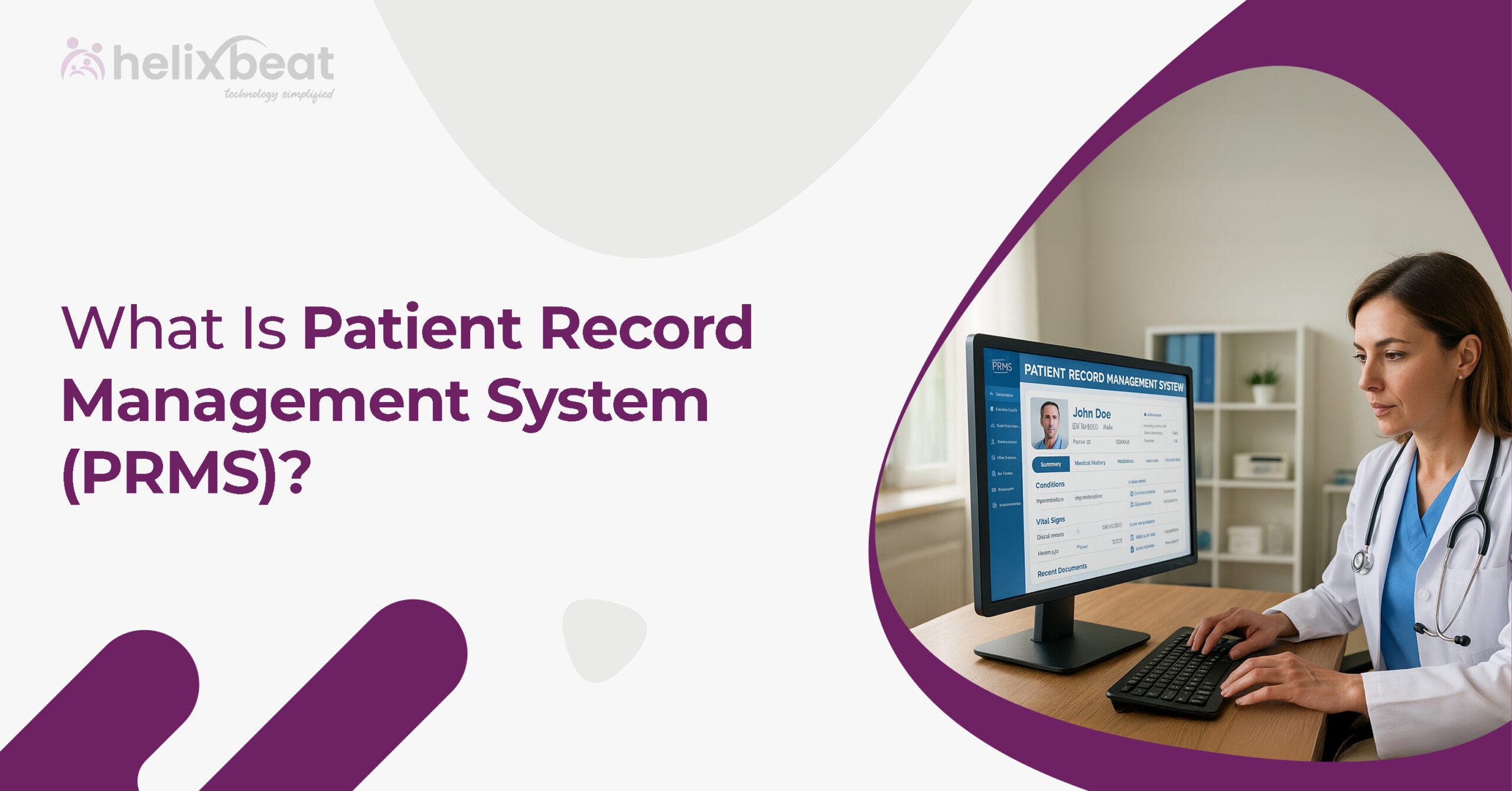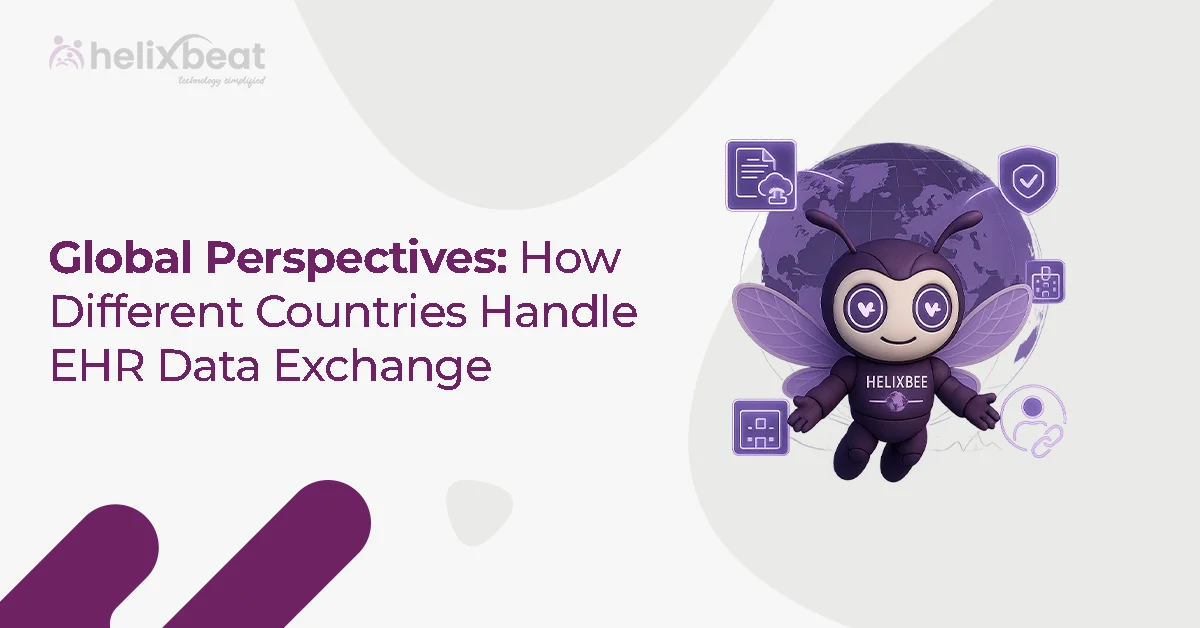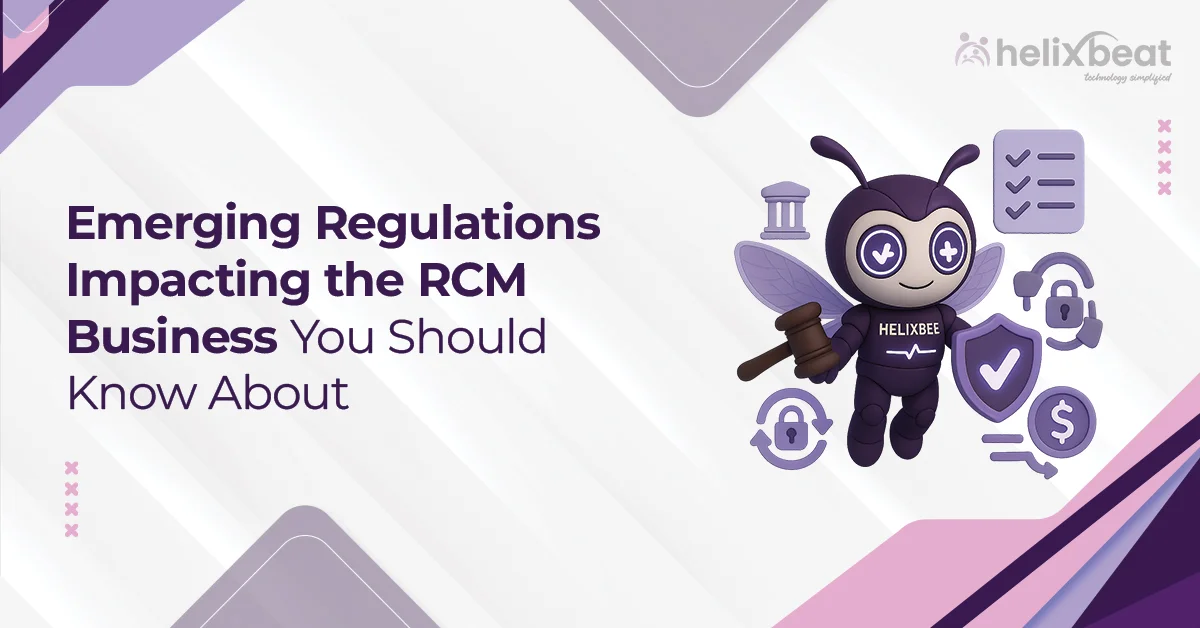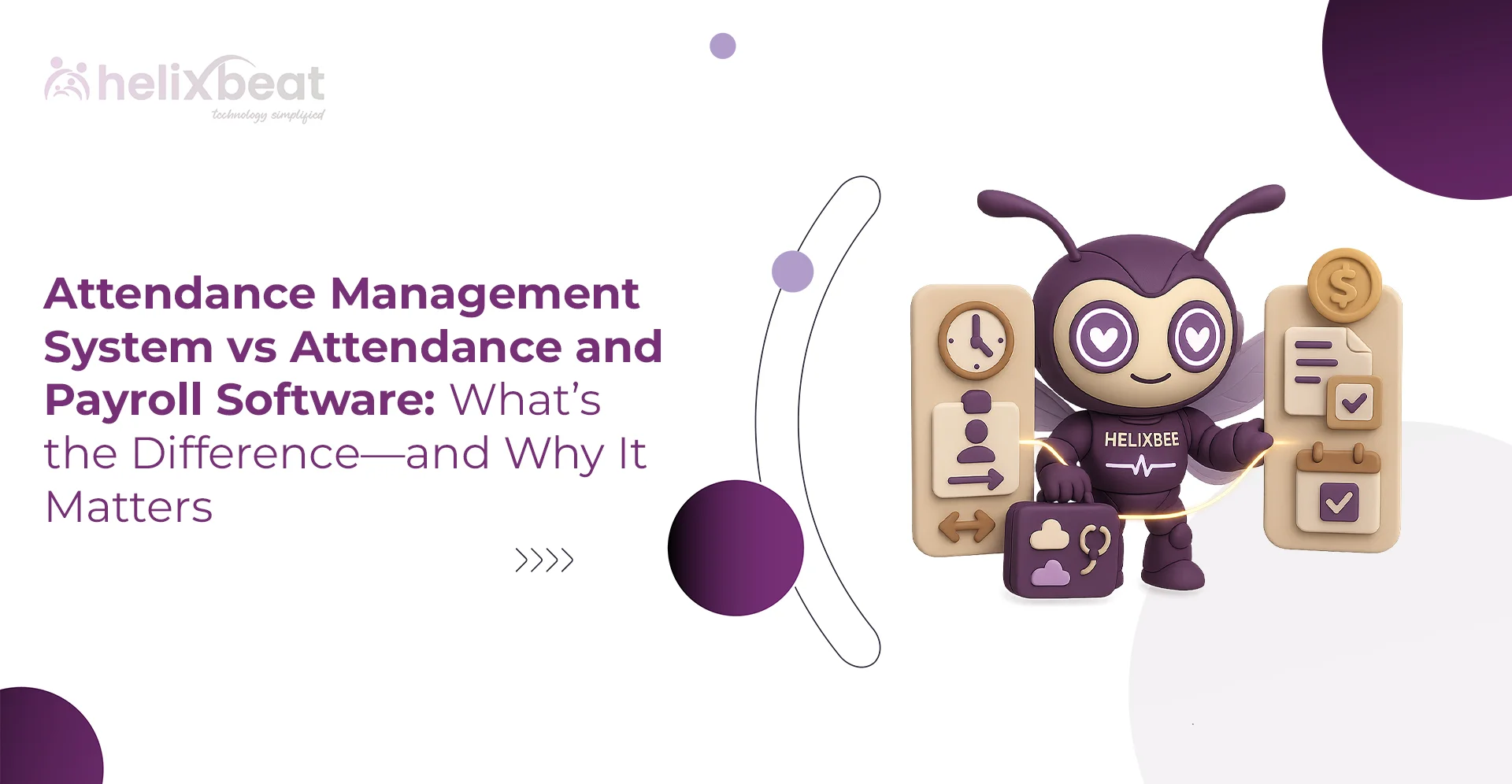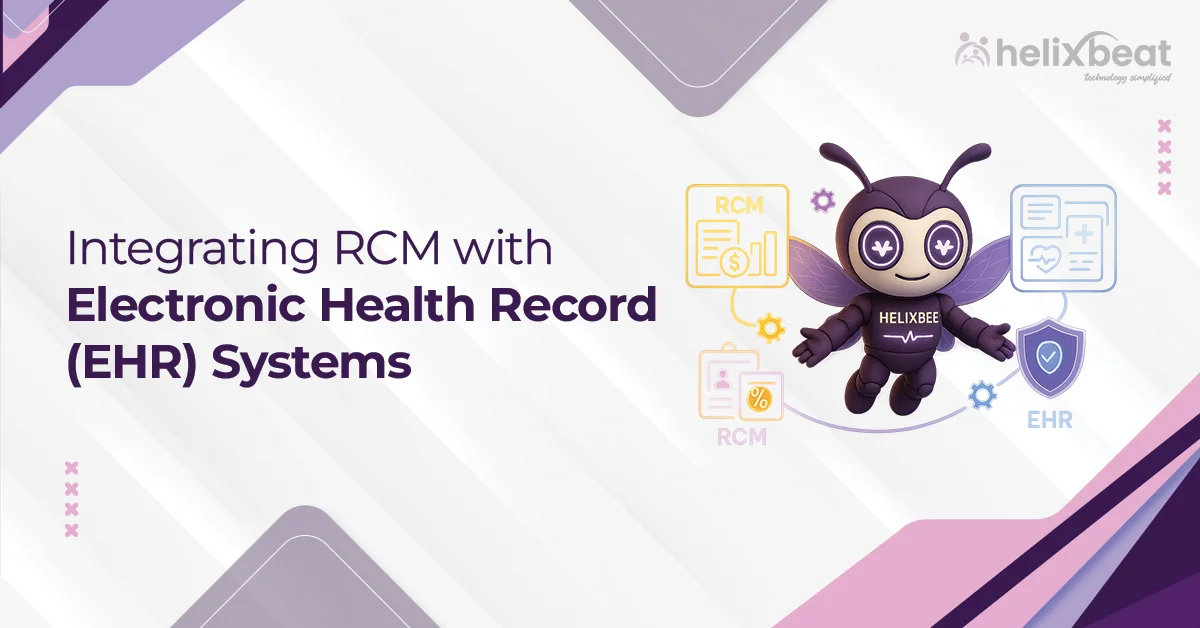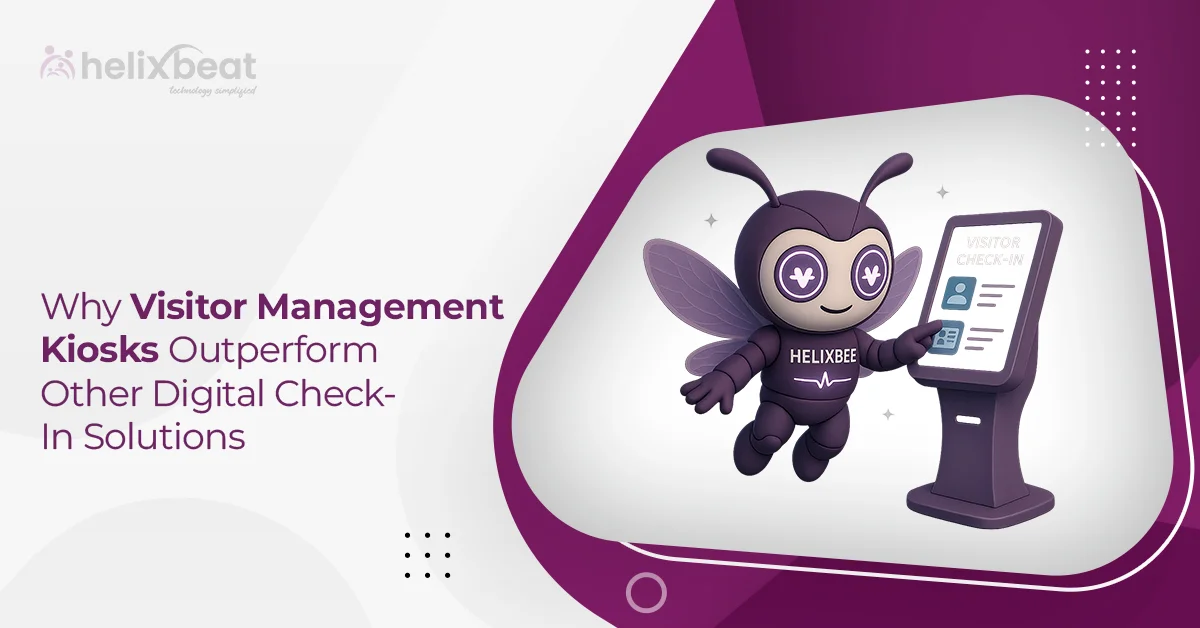A patient record management system is essential for modern healthcare, allowing providers to efficiently organize and access patient information. As the healthcare industry digitizes, having a reliable system is crucial for delivering quality care and improving patient outcomes.
In this article, we will explore what a patient record management system entails, its benefits, and how it drives better healthcare delivery through improved medical records management and clinical data management.
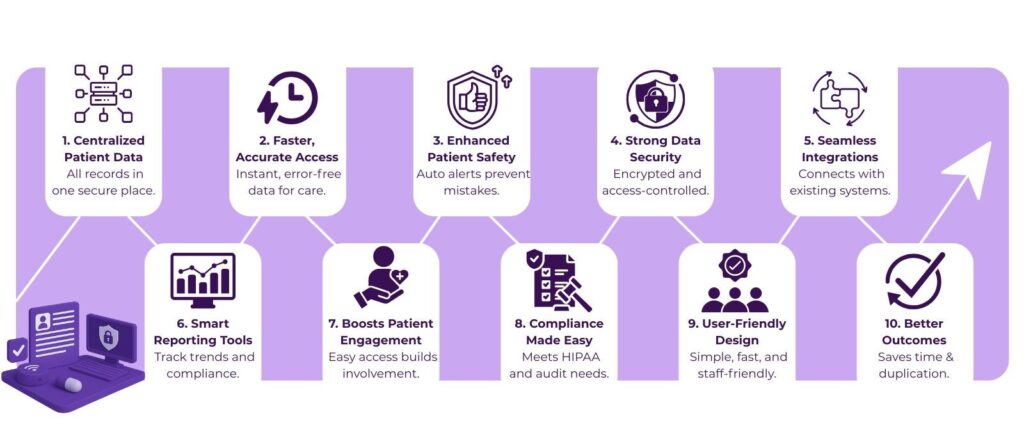
Table of Contents
Understanding Health Record Management and Medical Records Management
Managing the patient health information process involves multiple systems and methodologies that support the seamless sharing, storing, and managing of medical records.
While “health record management” and “medical records management” are often seen as the same, there are key differences in their use within healthcare. Let’s explore these terms and their similarities.
Learn More About Helixbeat’s Patient Record Management Solutions
Electronic Medical Record or Management Software: Features
Here’s the central question: What makes electronic medical records essential? Below are the reasons why EMRs are essential in healthcare industry:
- By reducing manual data entry errors, EMRs ensure accurate patient information is always available.
- Healthcare providers can access up-to-date medical information quickly, improving decision-making and patient care.
- EMR systems facilitate a seamless workflow by organizing patient data in a digital format, making it easier to find and share.
- With real-time updates and alerts for potential drug interactions or allergies, EMRs contribute to better patient safety.
The Role of Clinical Data Management in Modern Healthcare
Clinical data management is crucial for patient record systems. It provides healthcare providers with accurate information for better patient care. Effective clinical data management results in:
- Improved diagnosis and treatment through clear data.
- Fewer medical errors due to accurate records.
- Compliance with healthcare regulations.
- Enhanced communication among healthcare teams is managed.
How Important is Patient Engagement in Healthcare?
Patient engagement is key in healthcare, empowering individuals to take part in their care and decision-making. An effective patient record management system enhances communication and improves care quality.
To effectively increase patient engagement, healthcare providers can implement several key strategies, such as:
- Ensuring Easy Access to Medical Records
Qualifying patients to access their health information at any time gives them a sense of control. Tools like PULSE by Helixbeat facilitate secure, real-time access to electronic medical records and management systems, enhancing transparency.
- Promoting Open Communication
Creating clear pathways for patients to ask questions and express concerns helps demonstrate trust and collaboration.
- Customizing Care Plans
Developing treatment plans based on insights from clinical data management guarantees that patients receive tailored advice that meets their specific needs.
Benefits of a Patient Record Management System
Let’s explore the key advantages in detail:
- Robust Protection of Sensitive Patient Information
- A patient record management system like PULSE by Helixbeat employs state-of-the-art encryption technologies and multi-layered security protocols.
- This ensures that all patient data, including personal and medical histories, are securely stored and protected against cyber threats, unauthorized access, or data leaks.
- Adherence to Industry Regulations
- Compliance with healthcare regulations, such as the Health Insurance Portability and Accountability Act (HIPAA), is critical.
- PULSE supports these compliance requirements by automating safeguards, access controls, and consent management, thereby reducing the risk of costly penalties.
- Comprehensive Audit Trails and Activity Monitoring
- To maintain transparency and accountability, these systems log every access and modification made to the records.
- This helps healthcare administrators track who viewed or edited patient information, providing a clear audit trail for clinical data management and regulatory inspections.
Features to Look for in a Patient Record Management System
When selecting a patient record management system, it’s essential to focus on features that improve efficiency, security, and patient care. Here are the most important features to consider:
- User-Friendly Interface
- A patient record management system should have an intuitive and easy-to-navigate interface. Healthcare providers need to access and update medical records quickly without incurring additional time spent on complex software.
- Simplifies the process of managing health record management tasks.
- Reduces training time for staff and minimizes errors.
- Enhances workflow by allowing clinicians to focus on patient care rather than software navigation.
- PULSE by Helixbeat provides a seamless user interface specifically designed for healthcare professionals, streamlining clinical data management for enhanced efficiency.
- Integration Capabilities with Other Healthcare Systems
- Modern healthcare requires interoperability between different systems. The ideal patient record management system should integrate seamlessly with existing hospital information systems, laboratory systems, billing software, and electronic medical record or management software platforms.
- Enables smooth exchange of medical records management data across departments.
- Improving coordination between healthcare providers.
- Supports real-time updates for patient information, reducing duplication.
- Reporting and Analytics Tools
- Effective clinical data management relies on comprehensive reporting and analytics capabilities. A robust patient record management system should provide detailed insights into patient data, supporting better decision-making.
- Generates customizable reports for patient outcomes, treatment effectiveness, and operational efficiency.
- Identify trends that help improve healthcare quality.
- Supports compliance with regulatory requirements through audit trials and data transparency.
The Big Picture
Why is a strong patient record management system vital for your healthcare facility? Efficient management solutions enhance the accuracy, accessibility, and security of medical records, improving workflows and supporting better patient outcomes. Advanced electronic medical record systems reduce errors and ensure compliance with healthcare standards.
Additionally, a robust system promotes patient engagement, empowering individuals to take an active role in their health. With PULSE by Helixbeat, healthcare providers gain a secure and user-friendly platform that protects sensitive information and encourages meaningful patient interactions. Ready to enhance your data management and patient care? Sign up for a free demo of PULSE by Helixbeat today!
FAQs
- What is a patient record management system?
A patient record management system is software that organizes, stores, and manages patient health records digitally to improve accessibility, accuracy, and security.
- What is the patient management system (PMS)?
A patient management system (PMS) is a broader platform that handles patient registration, appointments, billing, and records to streamline healthcare facility operations.
- What is a record management system?
A record management system is a tool used to systematically store, retrieve, and manage various types of records, medical or otherwise, efficiently and securely.
- What is the HMS system?
HMS stands for Hospital Management System, which integrates multiple hospital functions such as patient care, administration, finance, and pharmacy into one platform.
- What Is Patient Record Management Software or System?
Patient record management software is a digital solution designed specifically to capture, maintain, and secure patient medical information for easy access and better healthcare delivery.
- What is the role of the patient record management system in healthcare or hospitals?
It ensures accurate and timely access to patient data, enhances clinical decision-making, improves patient engagement, and maintains compliance with healthcare regulations.



